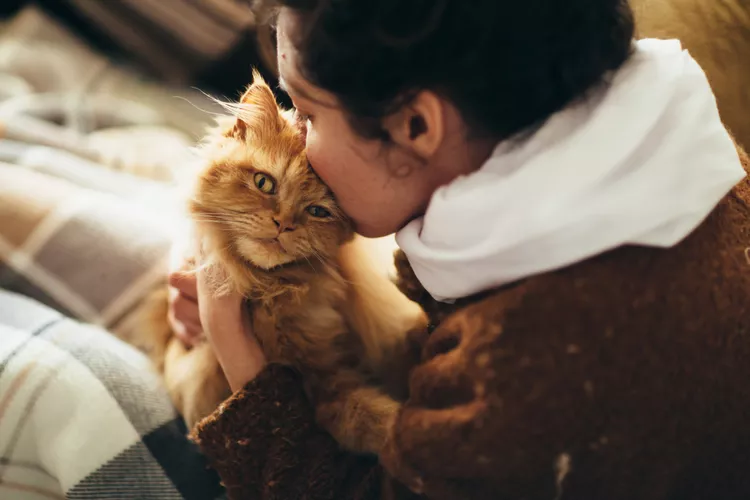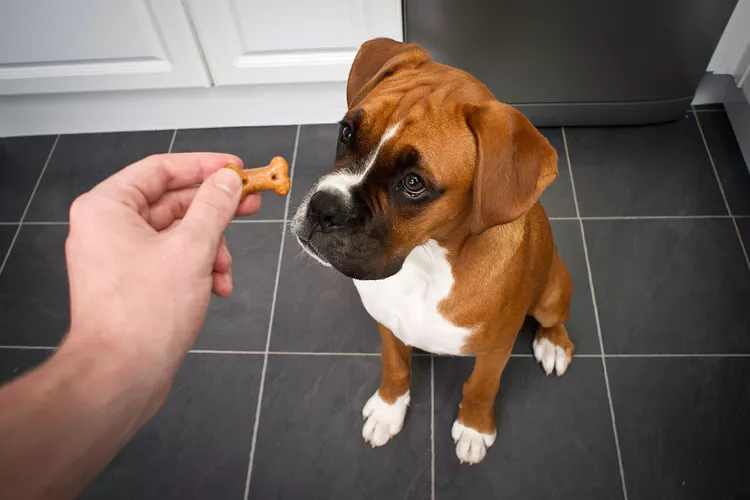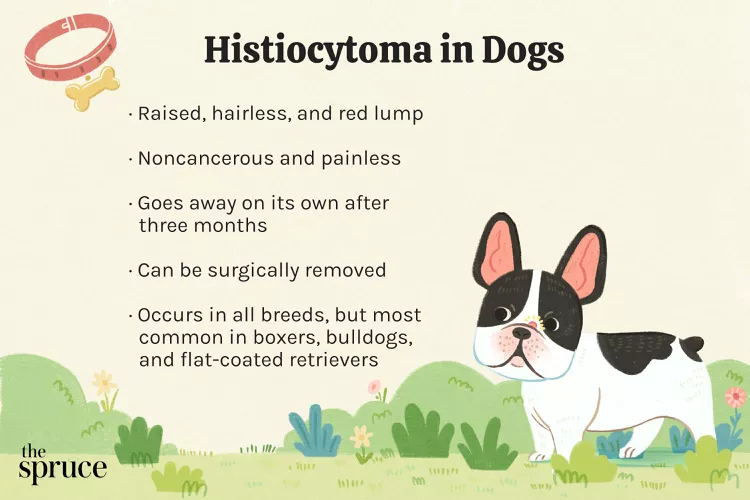
Dogs occasionally suffer bouts of depression. When dogs are depressed, they often appear sad and withdrawn. They can even lose interest in play.
Although dogs do not have the same capacity for reasoning as we humans, it doesn't mean they cannot experience depression. In dogs, depression is not exactly the same complex clinical disorder that it is in people. However, as a loving dog owner, you will be relieved to learn that you can actually help your dog if it is addressed. Often, the first step to doing this is getting your dog in for a veterinary visit.
As a pet owner, how do you fight an invisible, inner enemy? The first step is recognizing the problem. There are several potential causes of depression in dogs.
Slow deterioration and loss of initiative are definite clues that something is bothering your dog. If this is happening to your dog, you need to address it right away by taking them to the veterinarian for a check-up and possible diagnostics. If your veterinarian does not think a physical illness is the culprit, consider making some changes at home to try to make life fun again. Exercising with your dog is a wonderful way to begin.
Try to engage in fun activities with your dog, like games, fun tricks, and general training. Take some time to bond with your dog. You may also consider letting your dog play with other dogs or go to doggie daycare.
Naturally, you will want to pay more attention to your dog when he is depressed. This is not inherently bad, but do try not to coddle or overly comfort your dog. Too much coddling and comforting on your part may actually reinforce the sad behavior. It is very important to try your best to stay on schedule and stick to your normal routine. This can give your dog a sense of security and boost his confidence.
If the timing is right for your family, you may consider getting another dog. This may be helpful if your dog is depressed because of losing a companion. However, this could make things worse if your current dog does not accept the new dog. Sometimes, new dogs can be a source of stress and agitation for a current dog which creates more problems. Proceed carefully.
If none of these activities seem to be helping, your vet may still be able to help. Medications are sometimes thought of as a last resort, but there are cases when they are the best option. Some vets will prescribe a drug like fluoxetine (Prozac) though this is not right for all dogs. You may also consider seeking the help of an animal behaviorist.
Trying to help a dog that is depressed is important to that pet's quality of life, health, and happiness. While it is true that depression in dogs often resolves on its own after a short time, it is important to be proactive with dogs with depression. Signs of depression can look very similar to signs of illness. Remember that the right place to begin is with your veterinarian.
While your dog might appear to be sad, she might not be sad at all. In fact, studies show that dogs may wear a sad face if they know their owners are looking at them.
Sad or depressed dogs show changes in their behavior. They're often disinterested in games, act clingy or needy, or have lethargy and a decreased appetite.
Give it a day, if the behavior is mild. Your dog could easily snap out of it. After that, monitor how much it's eating and eliminating, and call your vet. A check-up can rule out big things, and then you can discuss ways to elevate your pooch's mood.

Cute Pictures & Facts About Calico Cats & Kittens
Learn fascinating facts about calico cats, including photos, the genetics behind this color combination, and common folklore and traditions.
How to Prevent Cat Separation Anxiety During Vacations
Discover why cats develop litter box problems and cat behavior problems when you go on vacation and what you can do about it to help them.
Cat Behavior Changes That Might Mean Something's Wrong
Cats' behavioral changes may indicate problems—or they may mean nothing at all. Explore causes of odd behavior and what to do about them.
Lhasa Apso: Dog Breed Characteristics & Care
The Lhasa apso is an ancient breed from Tibet that was bred to be a watchdog. Learn about its history, health, exercise needs, and more.
Reasons Why Dogs Run Away and How to Stop It
Dogs can escape, especially if they’re bored and not properly contained. Here are some techniques for stopping your dog from running away.
Can Dogs Get Depression? How to Help Your Sad Dog
Can dogs get depression? Learn about the signs of depression in dogs and find out how to help your sad dog.
How to Stop Aggression in Dogs
Dog aggression can be a serious behavior issue for pet owners. Learn how to stop aggression in dogs before someone gets hurt.
How to Stop Your Dog From Growling
A growling dog can soon become even more aggressive. Reduce the noise and potential for a dangerous situation with some of these techniques.
Why Do Dogs Dig Holes? How to Stop Your Dog from Relandscaping Your Yard
Dogs have been digging holes for centuries and for many reasons. Whether they’re bored or want to cool off in the dirt, here are the top reasons why dogs dig holes.
Dog Treat Varieties
Learn about the different types of dog treats on the market and decide which are best for your dog.
Can Dogs Eat Asparagus?
Dogs can eat asparagus, provided the vegetable is cooked plain and cut up for them. Seasonings, salt, and butter make it unhealthy for dogs.
Histiocytomas in Dogs
A histiocytoma is a type of benign (non-cancerous) skin lump that usually affects young dogs. Learn the causes, treatment, and prevention.
Why Is My Dog’s Eye Swollen?
If your dog's eye is swollen, she may need veterinary attention. The inflammation could be caused by allergies, an injury, or even a tumor.
Common Bugs and Parasites Found on and Inside Dogs
Learn about common types of parasites in dogs. Find out how to treat and prevent parasites to keep your dog, your family, and yourself safe.
Exploring the Different Types of Pet-Friendly Beaches
Are you looking for pet-friendly beaches? Learn about the different types of pet-friendly beaches, their locations, and tips for visiting them with your pet.
10 Obscure, Little-known Canine Facts in Honor of National Dog Day
With National Dog Day upon us, it's time to celebrate everything about our favorite pets—even the weirder stuff. Here are 10 obscure facts about dogs you probably didn't know.
Kitten Development From 3 to 6 Months Old
Kittens grow and change a lot during their first year. Find out what happens between the ages of three months and six months old.
95 Siamese Cat Names
Our list of Siamese cat names has diverse and fun options to help you choose the ideal moniker for your elegant and lovable feline companion.
What to Buy for Your New Cat: A List of Essentials
Before you bring your new cat or kitten home, there are a number of things to collect or buy so your cat will feel welcomed like a family member.
The 6 Best Cat Nail Clippers of 2024 for a Safe Trim
Clipping your cat's nails can save your furniture and keep your kitty comfortable. We asked veterinarians for their cat nail clipper recommendations.